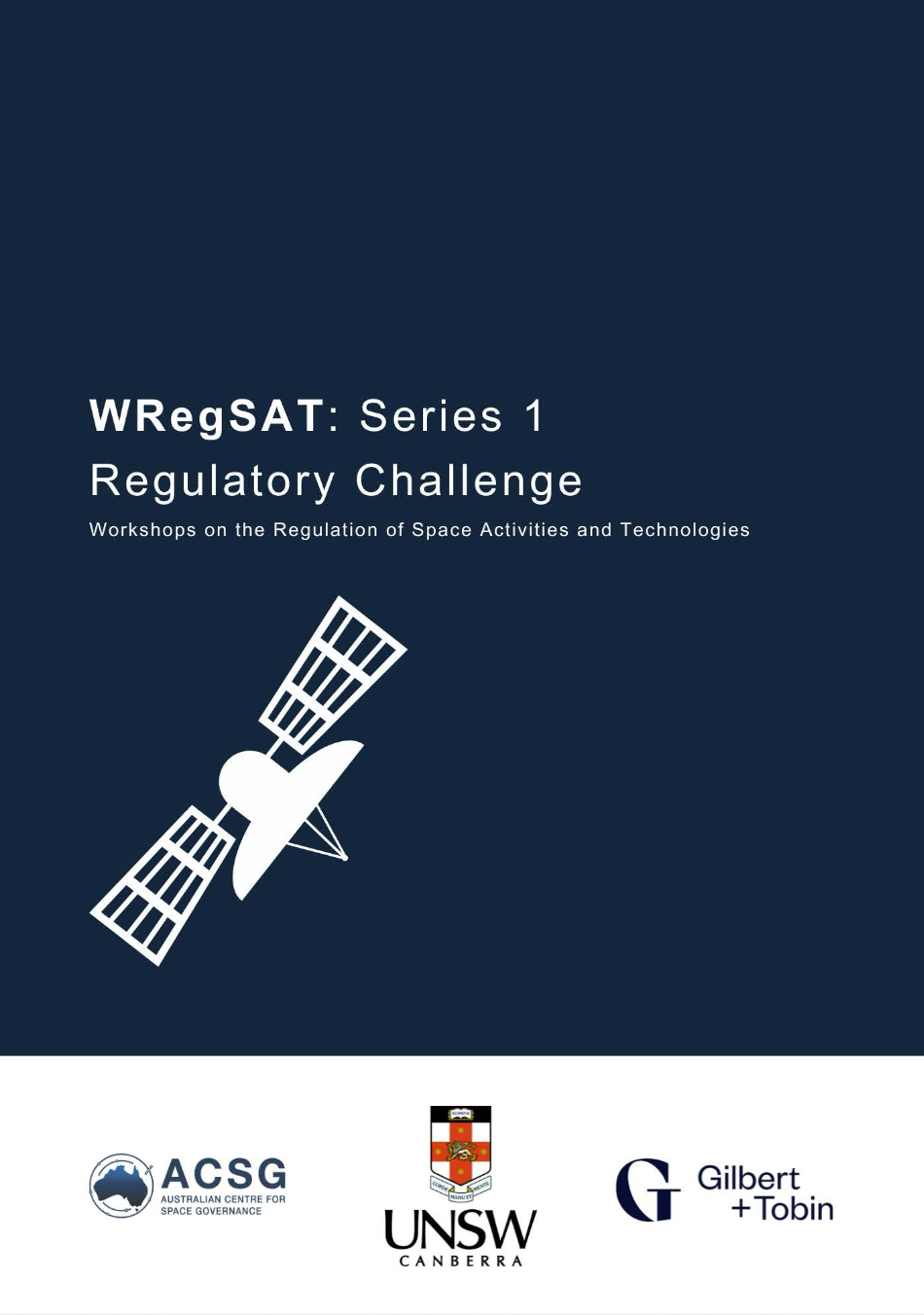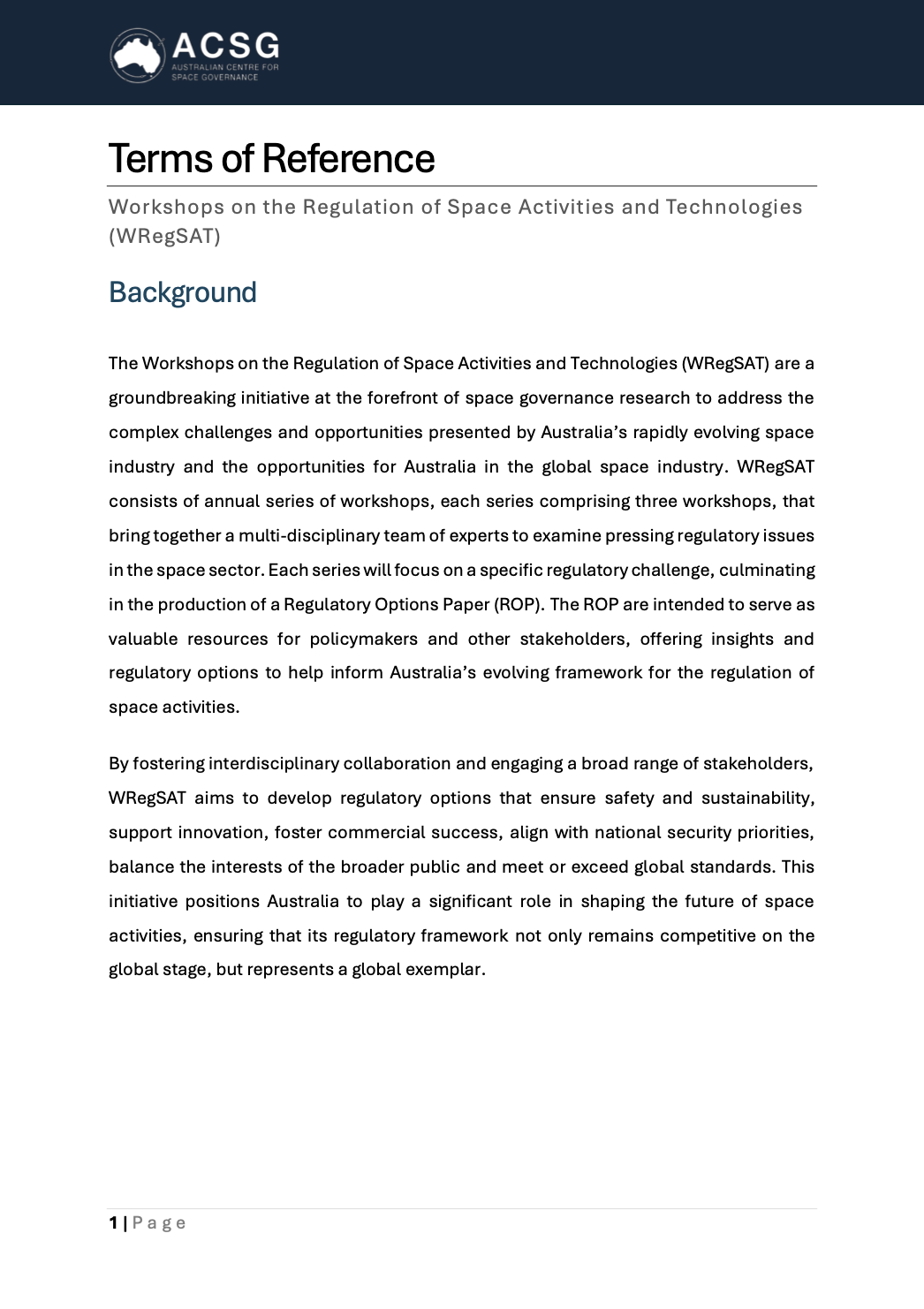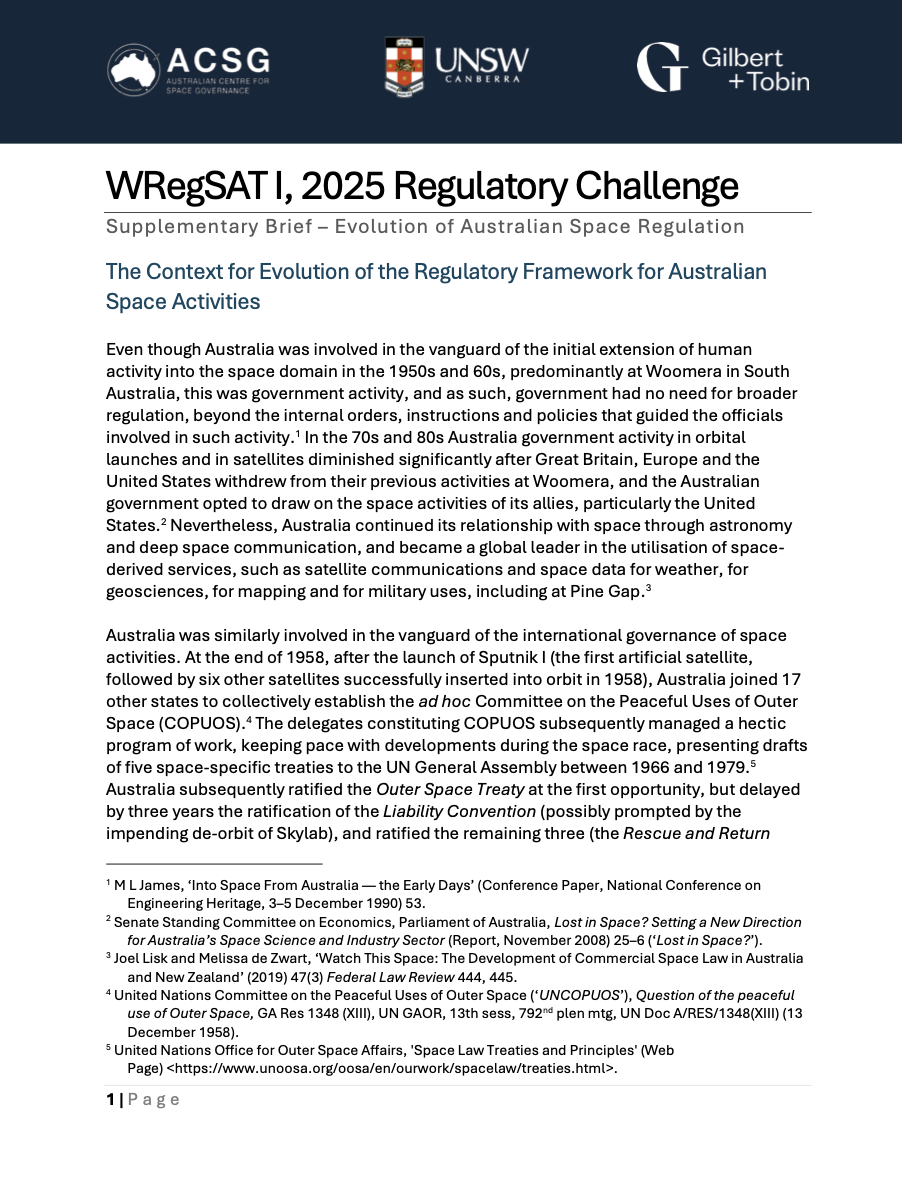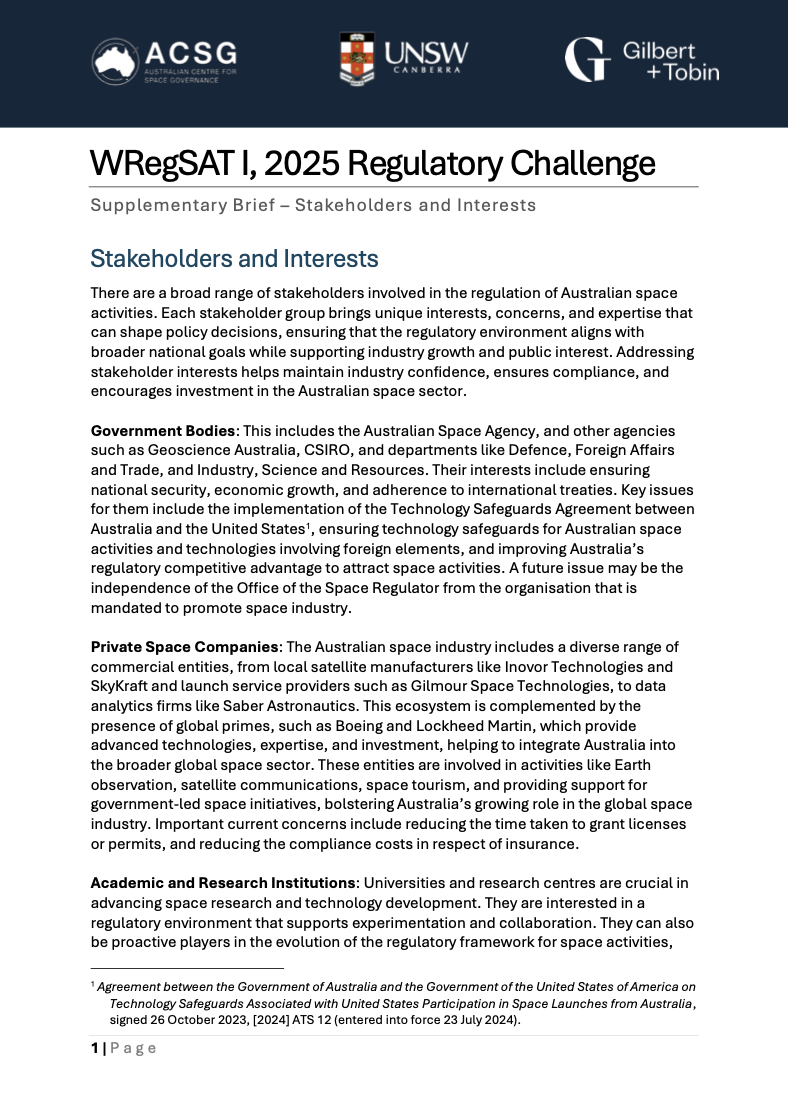WRegSAT
The Workshops on the Regulation of Space Activities and Technologies (WRegSAT) represent a groundbreaking initiative at the forefront of space governance research.
UNSW Canberra is managing this innovative project on behalf of the Australian Centre for Space Governance, which, aims to address the complex challenges and opportunities presented by Australia's rapidly evolving space industry.
The WRegSAT project will consist of a number of annual series, each series comprising three workshops, that bring together experts to examine pressing regulatory issues in the space sector. Each series will focus on a specific regulatory challenge, culminating in the production of a Regulatory Options Paper (ROP). The hope is that these comprehensive documents will serve as valuable resources for policymakers, and other stakeholders, offering insights and recommendations to help shape Australia's evolving framework for the regulation of space activities.

Addressing Australia's Space Ambitions
Australia's space industry is poised for significant growth, with projections indicating a potential market size of AUD$12 billion by 2030 and the creation of 20,000 new jobs. To support this expansion, the WRegSAT project recognises the need for a robust and adaptable regulatory framework that can keep pace with technological advancements and emerging space capabilities.
The project addresses critical questions about how best to regulate the space industry, balancing the need for a world-leading approach to governance with the imperative to foster growth in Australia's domestic space sector.
Key Objectives
The WRegSAT series aims to support several critical objectives that should be of particular interest to legal professionals:
Developing options for future-oriented regulations that anticipate and adapt to challenges in the space sector.
Ensuring sustainability in space activities.
Supporting innovation and competitiveness in Australian space enterprises.
Aligning space regulations with national security priorities and international agreements.
Proposing regulatory options that meet or exceed global standards.
Proposing exemplary regulatory models that can influence international frameworks.
Gathering and incorporating unique Australian perspectives, including insights from First Nations Peoples.
Interdisciplinary Approach
The WRegSAT project highlights the interdisciplinary nature of space governance, bringing together experts from various fields including law, humanities, engineering and technology. This approach recognises that effective space regulation requires a holistic understanding of the complex interplay between legal, ethical, and technical considerations.
The current scope of Australian space activities and technologies is significantly broader than the scope of the Space (Launches and Returns) Act 2018. Emerging space capabilities like active debris management, on-orbit servicing, lunar operations, and space resource exploitation are not adequately covered by existing regulations. The experts in the WRegSAT project will develop options for a regulatory framework that could address these gaps and that will be adaptable to future opportunities and challenges. This project is independent of government and of the regulator, the Australian Space Agency, which is charged with designing policy in the space sector. However, an observer from the Australian Space Agency will attend the workshops.
Stakeholder Engagement
The WRegSAT series emphasises the importance of engaging a broad range of stakeholders in the regulatory process. This inclusive approach ensures that the resulting framework considers diverse perspectives and interests within the space industry.
Global Context
With the global space industry projected to reach USD$1.8 trillion by 2035, the WRegSAT project positions Australia to play a significant role in shaping the future of space activities. By addressing emerging capabilities such as active debris management, on-orbit servicing, and space resource exploitation, the project ensures that Australia's regulatory framework remains relevant and competitive on the global stage.
Other universities contributing to the WRegSAT are the Australian National University, University of Adelaide, Flinders University, the University of Newcastle and RMIT.
WRegSAT Documents
-

WRegSAT: Series 1 Regulatory Challenge
-

WRegSAT: Terms of Reference
-

Supplementary Brief – Analogous Industries
-

Supplementary Brief - Comparative Jurisdictions
-

Supplementary Brief - Evolution of Australian Space Regulation
-

Supplementary Brief - Regulatory Theory
-

Supplementary Brief - Stakeholders and Interest

